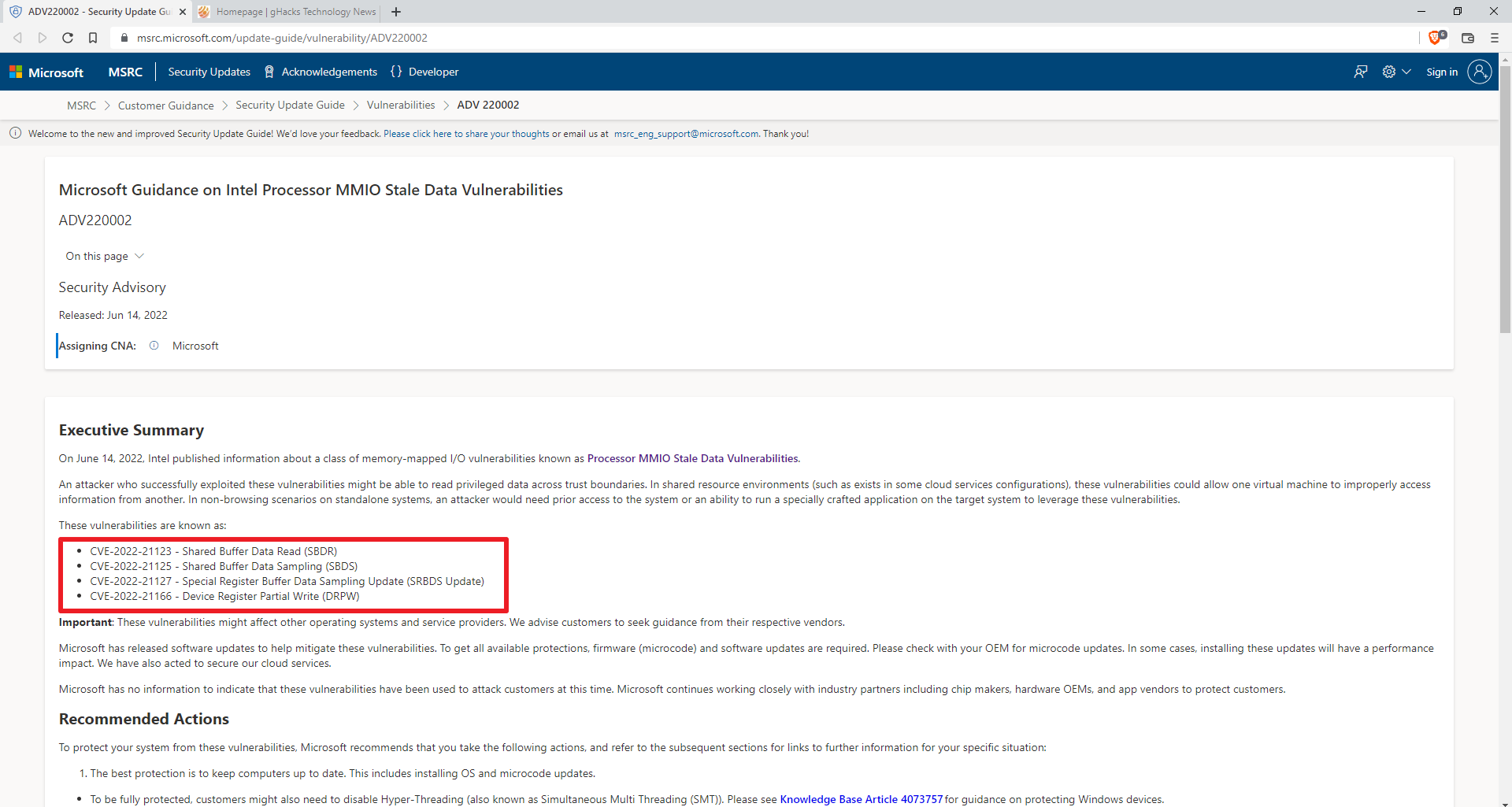Intel released new firmware updates to address Memory Mapped I/O security vulnerabilities. Intel and Microsoft published advisories this week to inform system administrators about the issues.

Microsoft customers may visit the Adv220002 support page, Microsoft Guidance on Intel Processor MMIO Stale Data Vulnerabilities, for information. Intel published a support page on the company's Security Center website.
The following four vulnerabilities affect certain Intel processors:
- CVE-2022-21123 - Shared Buffer Data Read (SBDR)? -- "Incomplete cleanup of multi-core shared buffers for some Intel Processors may allow an authenticated user to potentially enable information disclosure via local access"
- CVE-2022-21125 - Shared Buffer Data Sampling (SBDS) -- "Incomplete cleanup of microarchitectural fill buffers on some Intel Processors may allow an authenticated user to potentially enable information disclosure via local access"
- CVE-2022-21127 - Special Register Buffer Data Sampling Update (SRBDS Update) -- "Incomplete cleanup in specific special register read operations for some Intel Processors may allow an authenticated user to potentially enable information disclosure via local access"
- CVE-2022-21166 - Device Register Partial Write (DRPW) -- ": Incomplete cleanup in specific special register write operations for some Intel® Processors may allow an authenticated user to potentially enable information disclosure via local access"
The list of affected Intel processors is available here. It includes Intel 7th generation to 12th generation processors, Intel Atom processors, Intel Pentium Gold series processors, and Intel Celeron processors.
Intel published microcode updates, which administrators may install on affected systems to protect the devices. The company recommends that users update to the latest version provided by the system manufacturer.
Microsoft confirmed the issue and provided a description of a potential attack:
An attacker who successfully exploited these vulnerabilities might be able to read privileged data across trust boundaries. In shared resource environments (such as exists in some cloud services configurations), these vulnerabilities could allow one virtual machine to improperly access information from another. In non-browsing scenarios on standalone systems, an attacker would need prior access to the system or an ability to run a specially crafted application on the target system to leverage these vulnerabilities.
Windows client customers need to install the microcode update and software updates. Microsoft has not released the updates via Windows Update at the time of writing. German computer site WinFuture notes that Microsoft will release the updates soon.
Intel Firmware updates for Memory Mapped I/O security vulnerabilities
- aum and Edgar.Elooo
-

 2
2



3175x175(CURRENT).thumb.jpg.b05acc060982b36f5891ba728e6d953c.jpg)
Recommended Comments
There are no comments to display.
Join the conversation
You can post now and register later. If you have an account, sign in now to post with your account.
Note: Your post will require moderator approval before it will be visible.